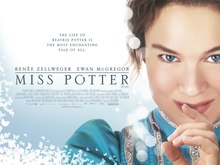movie _Miss potter
http://www.alphabet-soup.net/goose/goosequiz.html Mother Goose Quiz
|
-itis |
inflammation |
Arthritis(關節炎), gastritis(胃炎), hepatitis(肝炎) |
Diction
Diction (/ˈdɪkʃᵊn/; Latin: dictionem (nom. dictio), "a saying, expression, word"),[1] in its original, primary meaning, refers to the writer's or the speaker's distinctive vocabulary choices and style of expression in a poem or story.[2][3] A secondary, common meaning of "diction" means the distinctiveness of speech,[3][4][5] the art of speaking so that each word is clearly heard and understood to its fullest complexity and extremity, and concerns pronunciation and tone, rather than word choice and style. This secondary sense is more precisely and commonly expressed with the term enunciation, or with its synonym articulation.[6]
Jack Be Nimble

"Jack Be Nimble" is an English language nursery rhyme. It has a Roud Folk Song Index number of 13902.
Lyrics[edit]
The most common version of the rhyme is:
Jack be nimble,
Jack be quick,
Jack jump over
The candlestick.[1]
Origins and meaning[edit]
The rhyme is first recorded in a manuscript of around 1815 and was collected by James Orchard Halliwell in the mid-nineteenth century.[1] Jumping candlesticks was a form of fortune telling and a sport. Good luck was said to be signalled by clearing a candle without extinguishing the flame.[1]
nursery rhyme (term explanation)
A nursery rhyme is a traditional poem or song for young children in Britain and many other countries, but usage only dates from the late 18th/early 19th century and in North America the term Mother Goose Rhymes, introduced in the mid-18th century, is still often used.
Jack Be Nimble - Mother Goose Club Rhymes for Kids
https://www.youtube.com/watch?v=vZDIP3WI8lo
Georgie Porgie

"Georgie Porgie" is a popular English language nursery rhyme. It has a Roud Folk Song Index number of 19532.
Lyrics[edit]
The most common modern lyrics are:
Georgie Porgie, Puddin' and Pie,
Kissed the girls and made them cry,
When the boys came out to play,
Georgie Porgie ran away.[1]
Origins and meaning[edit]
The first recorded version of the rhyme was collected by James Orchard Halliwell in the mid-19th century with the lyrics:
Rowley Powley, pumpkin pie,
Kissed the girls and made them cry;
When the girls began to cry,
Rowly Powley runs away.[1]
There is a further theory, equally unsubstantiated, but traditional in families which supported the Stuart line to the throne, that this is an old Jacobite rhyme that relates to the 1745 rebellion of mainly Scots. In this account the rhyme relates to King George II. It incorrectly implies that as the Jacobite army headed further and further south ("When the boys came out to play"), King George fled England for the safety of mainland Europe ("Georgie Porgie ran away"). Similarly, the convention of using "ie" instead of "y" or "ey" at the end of words is prevalent in Scotland.[citation needed]
Also, the Great Fire of London started in Pudding Lane and is reported to have finished at Pye Corner. In this hypothesis, "The Boys" may refer to the firefighters of the time and Georgie Porgie was the arsonist running away at the prospect of the firefighters catching him at work. See "The Golden Boy of Pye Corner.
莎莎老師筆記:
George Porgy就變成”愛捉弄女孩的壞男孩”的代稱 (even in Jazz music)
造句: 小紅豆裡的小健就是一個典型的George Porgy
Georgie Porgie - Nursery Rhyme with Karaoke
https://www.youtube.com/watch?v=X7iSO0eE1CA
Jack and Jill

"Jack and Jill" (sometimes "Jack and Gill", particularly in earlier versions) is a traditional English nursery rhyme. The Roud Folk Song Index classifies this tune and its variations as number 10266. The rhyme dates back at least to the 18th century and exists with different numbers of verses each with a number of variations. Several theories have been advanced to explain its origins and to suggest meanings for the lyrics.
Lyrics and structure[edit]
The first and most commonly repeated verse is:
Jack and Jill went up the hill
To fetch a pail of water.
Jack fell down and broke his crown,
And Jill came tumbling after.[1]
Meaning and origins[edit]
The rhyme has traditionally been seen as a nonsense verse, particularly as the couple go up a hill to find water, which is often thought to be found at the bottom of hills.[7] Vinegar and brown paper were a home cure used as a method to draw out bruises on the body.[8] The phrase "Jack and Jill", indicating a boy and a girl, was in use in England as early as the 16th century. A comedy was performed at the Elizabethan court in 1567-8 with the title Jack and Jill and the phrase was used twice by Shakespeare: in A Midsummer Night's Dream, which contains the line: "Jack shall have Jill; Nought shall go ill" (III:ii:460-2) and in Love's Labour's Lost, which has the lines: "Our wooing doth not end like an old play; Jack hath not Jill" (V:ii:874–5), suggesting that it was a phrase that indicated a romantically attached couple, as in the proverb "A good Jack makes a good Jill".[1]
Jack And Jill | Nursery Rhymes | By LittleBabyBum
https://www.youtube.com/watch?v=XzhesUdAPNo
Movie _ "Jack and Jill" (龍鳳大雙胞)
Climax

Orgasm
Orgasm (from Greek ὀργασμός orgasmos "excitement, swelling"; also sexual climax) is the sudden discharge of accumulated sexual excitement during the sexual response cycle, resulting in rhythmic muscular contractions in the pelvic region characterized by sexual pleasure.



